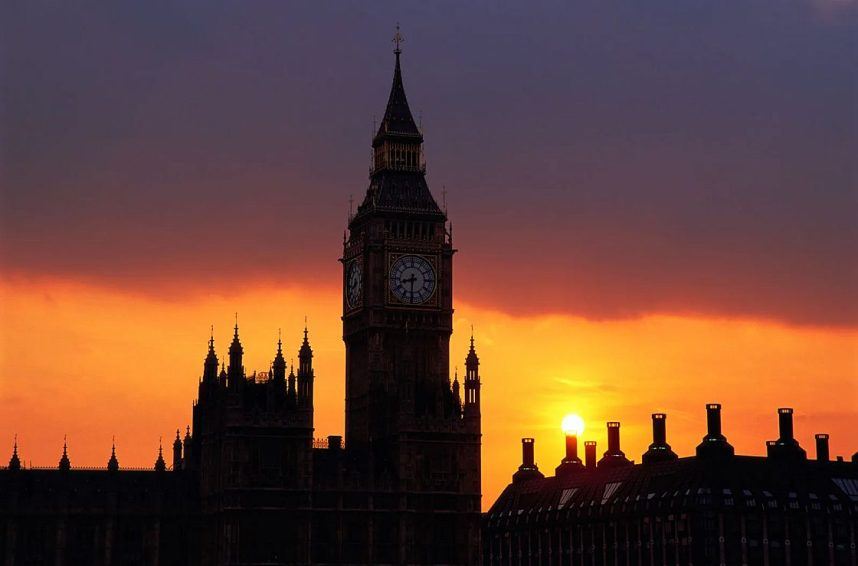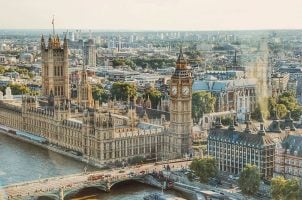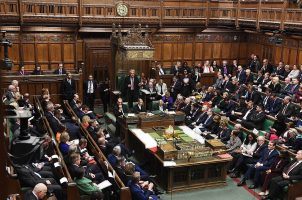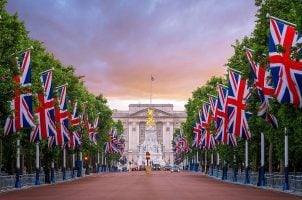UK Could Force iGaming Operators to Pay for Gambling Harm Research
Posted on: October 17, 2023, 06:55h.
Last updated on: October 17, 2023, 11:09h.
In a move to address concerns over problem gambling, the UK government is proposing a mandatory 1% levy on iGaming operators’ revenues. This initiative, a recommendation that appeared in the updated gambling white paper, is currently under discussion between government officials and industry stakeholders.

If implemented, the 1% levy, based on 2022 revenues, could generate £100 million (US$121.78 million). The funds collected would be directed toward the National Health Service (NHS), where they will be used to support research and initiatives aimed at responsible gambling.
Most of the budget directed toward the UK’s Department for Health and Social Care (DHSC) currently goes to the NHS. The British Medical Association indicates that for the 2023-24 fiscal year, the organization will receive 85% of the budget, or around £160.4 billion (US$195.33 billion).
Raising the Stakes
The proposed levy marks a substantial increase from the previous voluntary contribution of approximately 0.1% made by iGaming operators. The government’s decision to make the levy mandatory reflects a commitment to addressing the social consequences of gambling addiction. It would also ensure that operators bear a more substantial responsibility for mitigating these issues.
Notably, land-based gambling operators will contribute to the cause, but at a lower rate of 0.4%. The government justifies this discrepancy by pointing to the higher fixed costs associated with traditional brick-and-mortar establishments.
It asserts that the financial burden should be distributed in a manner that reflects the different operational challenges faced by online and land-based operators. At the same time, the mandatory levy won’t apply to the National Lottery.
Gaming operators, both land-based and online, have delivered significant revenue to responsible gambling programs through their voluntary contributions. Since 2020, more than £110 million (US$133.95 million) has been provided, according to the Betting and Gaming Council.
Not all of that money has gone to the NHS, however. This is because the UK’s primary health organization has refused to accept the voluntary contributions.
Supplementing the voluntary contributions, the UKGC has collected hundreds of millions of dollars via fines and settlements. A percentage of the money it receives through its regulatory oversight functions is for addressing gambling harm and addiction.
Unclear Outcome
The proposed increase has sparked debates within the industry, with iGaming operators expressing concerns about the potential impact. Some argue the move may hinder innovation and growth in the sector. Others acknowledge the need for a more substantial commitment to responsible gambling practices.
A study published in the British Medical Journal earlier this year suggested the mandatory levy was possibly a bad idea. The authors highlighted a lack of responsible gambling research as being problematic for creating policy. This is a conclusion the UKGC has reached, as well.
If the 1% levy survives, iGaming operators may reassess their business models and marketing strategies to offset the increased financial burden. The discussions between the government and industry players are ongoing, and the final decision will depend on those debates.
The potential infusion of £100 million into the NHS for responsible gambling research reflects a broader societal shift toward holding the gaming industry accountable for the decisions consumers make. As the discussions unfold, the UK gambling landscape may witness transformative changes aimed at creating a more sustainable and responsible environment.
Related News Articles
UK Government Committee to Launch Gambling Study Ahead of New White Paper
New UK Gambling Regs Under Fire Over Lack of Evidentiary Support Claims
UK Government Data Mistakes Forces Changes to Gambling Reform Discussions
Most Popular
LOST VEGAS: ‘Tony The Ant’ Spilotro’s Circus Circus Gift Shop
Casinos That Were Never Casinos
LOST VEGAS: The Strip’s First Fountain Show
Most Commented
-
End of the Line for Las Vegas Monorail
— April 5, 2024 — 90 Comments -
Cracks Emerging on Las Vegas Strip Says Analyst
— April 30, 2024 — 17 Comments -
Mega Millions Reportedly Mulling Substantial Ticket Price Increase
— April 16, 2024 — 10 Comments -
Caesars Open to Selling ‘Non-Core’ Casinos to Reduce Debt
— May 1, 2024 — 8 Comments
















No comments yet